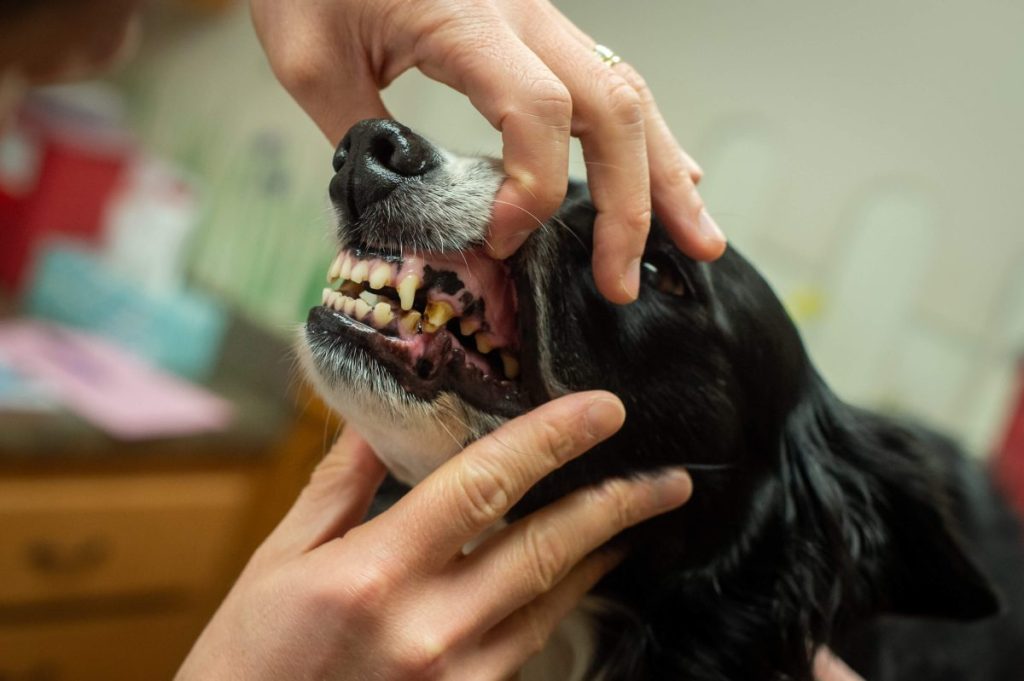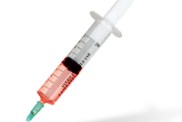When it comes to your dog’s health, their teeth might not be the first thing on your mind. However, dental cavities can be a real concern for dogs. Much like in humans, these cavities — also known as dental caries — can lead to severe pain and infections if not treated promptly. A cavity is essentially a hole in the tooth caused by decay, which results from the destruction of the enamel and dentin layers. Research shows that about five percent of dogs will experience dental cavities at some point in their lives. While they are less common in canines than in humans, cavities can still pose significant health risks and negatively affect your dog’s quality of life.
Here’s what you should know about the symptoms, causes, and treatments of the condition.
Symptoms of dental cavities in dogs
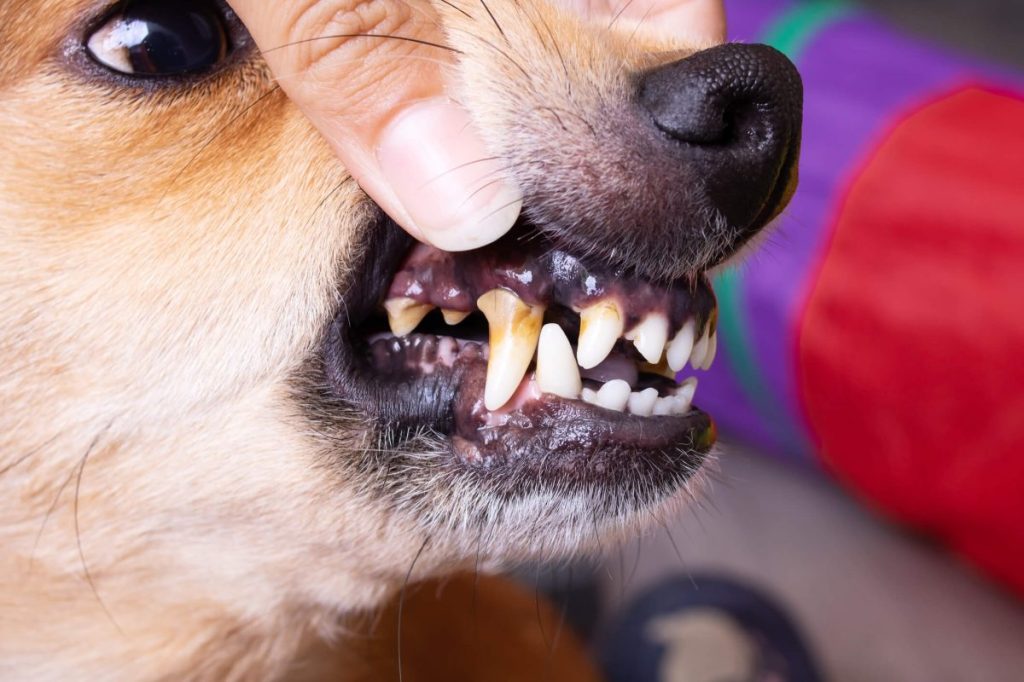
Detecting cavities early in dogs can be challenging, as they often do not show obvious signs until the condition is advanced. However, there are several symptoms to watch for:
- Visible holes or dark spots
- Bad breath
- Tooth discoloration
- Excessive drooling
- Difficulty eating
- Pawing at the mouth
- Swelling or bleeding gums
Causes of dental cavities in dogs
Dental cavities in dogs begin with plaque accumulation. Plaque is a sticky film made up of food particles, saliva, and bacteria. If not regularly removed through proper dental hygiene, plaque hardens into tartar — or calculus — which firmly adheres to the teeth and can only be removed by professional cleaning.
The bacteria in plaque ferment carbohydrates on the surface of the teeth, producing acids that can erode the enamel over time and create small pits or holes. If these early signs of cavities are not addressed, the dental decay can penetrate deeper layers of the tooth, eventually reaching the pulp, which contains nerves and blood vessels. This progression not only causes pain but can also lead to more severe infections and systemic health problems.
Some common factors that contribute to the development of dental caries in dogs include:
- Diet: Diets high in carbohydrates and sugars can increase the risk of cavity formation. While most commercial dog foods are formulated to reduce this risk, certain treats and human foods can be problematic.
- Poor oral hygiene: Lack of regular brushing and dental care can lead to the buildup of plaque and tartar.
- Genetics: Certain breeds are more predisposed to dental problems due to the shape and alignment of their teeth. Small and toy breeds, for example, often have overcrowded teeth, which can make it easier for plaque to accumulate.
- Underlying health conditions: Dogs with health issues such as diabetes or immune system disorders may be more susceptible to cavities.
- Age: Older dogs are more likely to develop dental caries due to the natural wear and tear on their teeth over the years.
- Saliva composition: Saliva helps neutralize acids in the mouth and wash away food particles. Variations in saliva composition can influence susceptibility to cavities.
Treatments for dental cavities in dogs
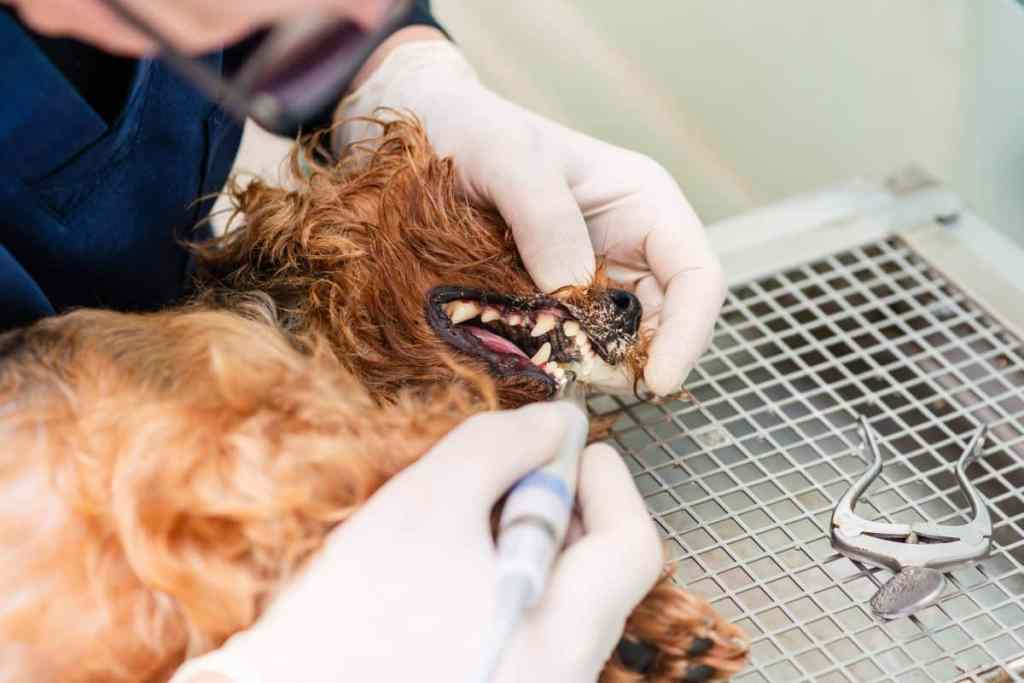
Before any treatment for cavities can be administered, a thorough dental examination by a veterinarian is essential. This typically involves a physical examination, dental X-rays, and possibly anesthesia to get a comprehensive view of your dog’s oral cavity. These steps help determine the severity of the cavity and identify any underlying issues — such as periodontal disease or abscesses — that may need attention. Once a cavity is diagnosed, your vet may recommend one of the following treatment options:
- Professional dental cleaning: Your vet will likely recommend a dental cleaning to remove any plaque and tartar buildup. Under anesthesia, the vet will clean and examine your dog’s teeth closely to spot any cavities or other dental issues. This process not only helps in treating existing cavities but also in preventing new ones.
- Dental fillings: If the cavities are detected early, your vet may suggest fillings or bonding to treat the affected tooth. Similar to human dentistry, the decayed portion of your pup’s tooth will be cleaned out and filled with a dental composite or amalgam.
- Root canal therapy: A root canal might be necessary in cases where the cavity has reached the pulp. This procedure involves removing the infected or dead pulp tissue within the tooth, cleaning the root canals, and then filling and sealing them to prevent further infection. After the procedure, a crown may be placed over the tooth to provide extra strength and protection.
- Tooth extractions: When a cavity is too advanced and the tooth cannot be saved, extraction may be the best option to prevent pain and infection. Dogs adapt quite well to losing teeth and can still eat and play normally after they recover.
How much does it cost to fill a dog’s cavities?
The cost of filling your dog’s cavities can vary widely, depending on several factors. Generally, you can expect to spend anywhere from $600 to $1,200. The price fluctuates based on the severity of the cavity, the specific procedures required, and even your geographical location. Basic treatments like a simple filling might be on the lower end of the spectrum. On the other hand, more complicated cases involving root canals or extractions can push you toward the higher end.
Additionally, it’s important to consider that the cost isn’t just about the filling itself. Pre-procedure blood work, X-rays, anesthesia, and post-op care all add to the final bill. Veterinary dental specialists often charge more than general vets, but they also bring a higher level of expertise to the table. It’s worth discussing all these aspects with your vet to get a comprehensive estimate and understand what exactly you’re paying for.
Prevention of dental cavities in dogs
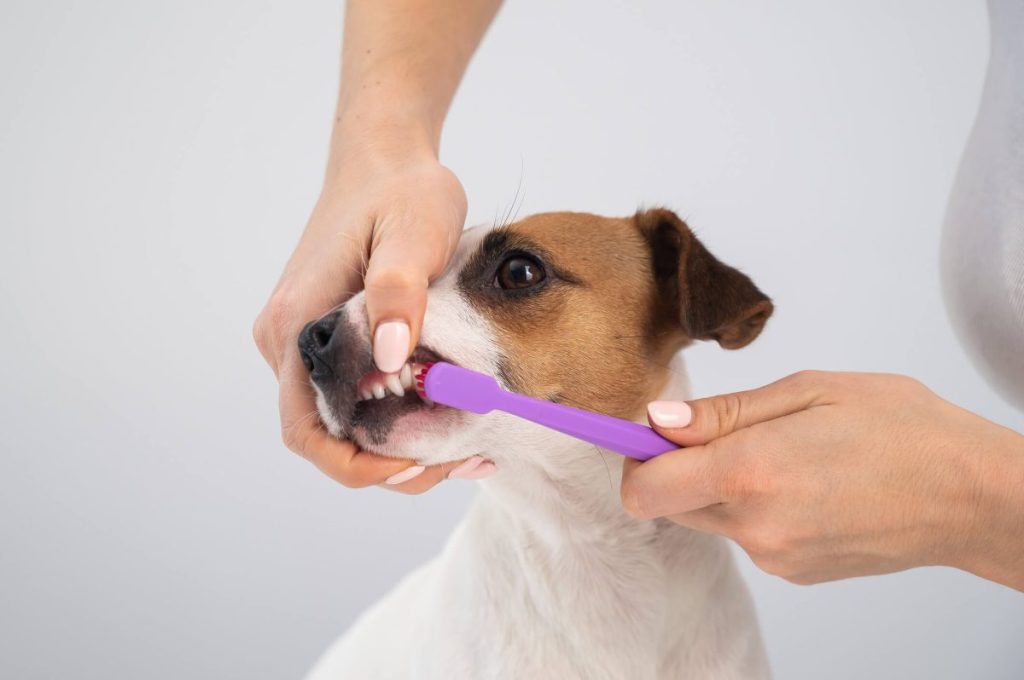
Preventive care is the most effective way to combat dental cavities in dogs. Here are some strategies to ensure your dog’s teeth stay healthy:
- Regular brushing: Brushing your dog’s teeth regularly with dog-specific toothpaste and a soft-bristled brush can make a huge difference. Aim for at least a few times a week, if not daily.
- Healthy diet: To reduce the risk of plaque formation, feed your dog a balanced diet with limited sugars and carbohydrates. Consider dental-specific diets or treats that promote oral health.
- Chew toys: Providing dental chew toys can assist in mechanically removing plaque from teeth and stimulating healthy gums.
- Water additives and oral rinses: These products can be added to your dog’s water or applied directly to reduce bacteria and freshen breath.
- Routine dental check-ups: Regular veterinary check-ups and professional cleanings are crucial for maintaining oral health. Your vet can spot and address dental issues before they become severe.
By staying proactive about your dog’s dental health, you can prevent painful cavities and ensure your pet enjoys a healthy, happy life. Always consult with your veterinarian for the best dental care practices tailored to your dog’s specific needs.
